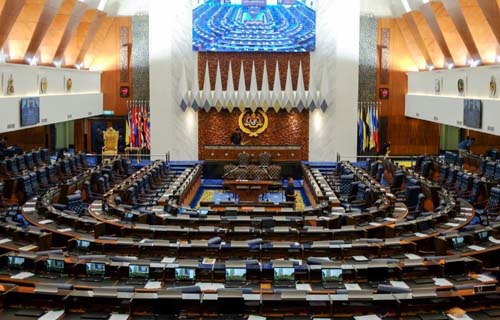Money and power at the right place

Written by YAM Tunku Zain Al-‘Abidi, he is the founding president of the Institute for Democracy and Economic Affairs [IDEAS].
With a GDP growth rate of 5.9% in Q2 2024, it may be ideal time for broader revenue-raising measures with robust wage growth and low inflation.
My colleagues at the Institute for Democracy and Economic Affairs (DEAS) in general welcomed the government’s Budget 2025.
In terms of fiscal responsibility and consolidation, the reduction of the fiscal deficit (from 5% in 2023 to 3.8% in 2025) reflects a serious effort towards reducing Malaysia’s debt burden. Still, the government is projected to spend more to service our debt, from 15.8% of the operating expenditure in 2024 to 16.3% in 2025.
The proposed Public Finance and Fiscal Responsibility Act should guide prudent fiscal policy, but further reforms are needed to address Malaysia’s low tax revenue-to-GDP ratio.
Cautious approaches to revenue generation has resulted in minor tax measures, but as our acting CEO Aira Azhari says, with a GDP growth rate of 5.9% in Q2 2024, low inflation, robust wage growth and a low employment rate, this may be an ideal time to implement broader revenue-raising measures.
In terms of business and trade, the reframing of incentive measures through the New Investment Incentive Framework aligns with policy shifts towards high value- added sectors like integrated circuit design and advanced technology, complemented by measures to encourage educational institutions to equip students with future job market skills.
As chairman of a digital skills company, I’ve seen the tremendous positive impact this can have on graduates.
In terms of climate change and sustainability, Ideas welcomes the proposal to pilot carbon pricing in the iron and steel industry, with the sectors being affected by the EU Carbon Border Adjustment Mechanism and the EU being a major trading partner for Malaysia in industrial sectors.
In terms of governance and democracy, Ideas commends the government’s plans to reform statutory body governance and merge overlapping entities, such as the Malaysian Aviation Commission (Mavcom) with the Civil Aviation Authority of Malaysia (CAAM) and the Malaysian Investment Development Authority (Mida) with InvestKL.
In this endeavour, political will and transparency are key.
Oversight activities will get more funding, with the National Audit Development’s budget rising by 10.2% to RM184mil and Parliament’s allocation increased by 7.3% to RM180mil.
But what would be better is for the government to reinstate the Parliamentary Services Act to grant our legislature greater institutional, administrative and financial autonomy from the executive branch.
I highlighted two particular aspects of the Budget at a forum organised by the Negri Sembilan state government involving financial officers from all the states.
One was the effort in the budget to address regional development disparities and the other was the increased funding for Ecological Fiscal Transfers to incentivise states to preserve natural habitats while moving away from reliance on revenue from mining and logging.
What is important now is to recognise that the changing public policy landscape, affected by environmental considerations and increased use of technology (including social media and artificial intelligence) will change how citizens interact with government. That’s why the forum was so important in bringing together federal and state officers – working with political parties of all stripes – so that they can understand, propose and implement ways to improve Malaysia’s status as a federation.
Thus I suggested in the presence of the federal and state officers, they should be guided by the Federal Constitution and also best practice in other countries: after all, as a democracy, we can amend our laws if it is shown that certain decision-making powers should be held at a different level.
Of course, political realities also have a strong role to play.
In this regard, two other events raised similar questions. One was one of my Sukma squash gold medallists pondering why it was that – while being very grateful for the reward that the Negri Sembilan government was able to offer – gold medallists from Sarawak got a much bigger reward for the same achievement.
The second was a talk that a law firm asked me to give again on the topic of federalism in Malaysia.
There, it was not just matters of budgets, but of constitutionalism too.
In the company of senior judges and lawyers, I was asked how the judiciary should respond to questions of federalism; and indeed there are so many areas that have yet to be explored, from the position of religion to the intent of the Dewan Negara and the interpretation of the legislative lists in Schedule Nine of the Federal Constitution.
What is certain is that discourse on Malaysian federalism is thriving and this will improve us as a democracy.
Read the article in Malay and Chinese language
This article first appeared on www.thestar.com.my at November 1, 2024.
All opinions are the author’s own.


